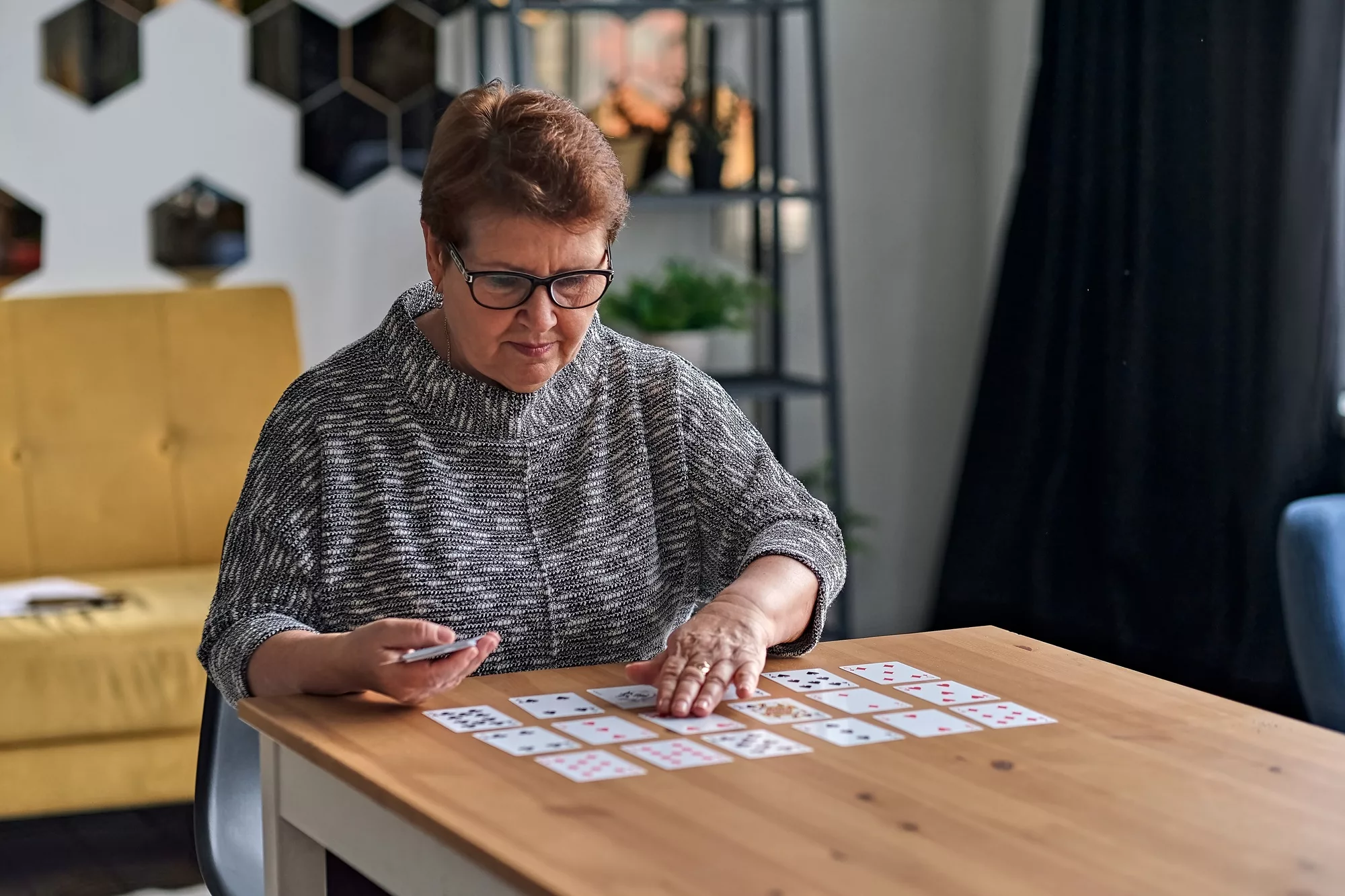In a world filled with distractions and fast-paced entertainment, some of life’s simplest pleasures remain surprisingly powerful for sharpening the mind. One such pastime is the game of Freecell, a digital card game that has been engaging players for decades with its blend of strategic complexity and meditative flow. Unlike games left to mere chance, Freecell relies upon logic, patience, and foresight—giving it more depth than a mere diversion. Indeed, it functions as a quiet proving ground for real-world problem-solving, challenges that must be approached thoughtfully and solved methodically.
This article explores how Freecell, often underestimated as just “another patience game,” cultivates cognitive abilities, strengthens mental discipline, and offers psychological benefits beyond the pixels on a screen. With varied conundrums that challenge planning and judgment in turn, it acts unseen to quietly hone faculties useful in life beyond the pastime itself.
The Unique Appeal of the Freecell Game
Freecell presents a cerebral challenge unlike most other games of chance. Success stems almost entirely from thoughtful strategy rather than luck of the draw, as skilled players can resolve nearly every layout through prudent planning and systematically efficient movement.
The mechanics are straightforward – build ascending sequences by suit from Ace to King across four tableau columns or within four temporary reserve slots, all feeding foundations to be filled – but complex puzzles emerge from even minimal variation in initial card placement. Unlike other solitaire styles whose outcomes depend partly on unseen factors, here the whole puzzle is visible at the outset, the solution implicit within the current configuration. This transparency shifts the Freecell game fully into the realm of logical problem-solving, demanding astute sequence recognition and chain reaction anticipation to clear cards smoothly from play.
The mental engagement mirrors real-world situations requiring creative, step-by-step reasoning under constraints to arrive at an optimal resolution. With practice, games become engrossing tests of strategic acumen rather than tests of chance, the engaging challenges lying not in what cards you draw but how ingeniously you arrange and shift the dealt set.
Breaking Down Complex Problems
At its core, problem-solving entails breaking down intricacy into workable parts. Freecell epitomizes this practice beautifully. When one begins a contest, the tableau can seem overwhelming. Eight columns of randomly arranged cards waiting to be organized. To win, one must conclude which movements matter most: should you liberate a buried Ace initially, or focus on clearing a column to launch added maneuverability? Each step builds upon the last, similarly to solving a work undertaking, fixing a domestic condition, or perhaps planning a private project.
By practicing this talent in a game setting, players expand a structured way of reasoning. Rather than reacting impulsively, they learn to pause, assess possibilities, and prioritize. This style of systematic dismantlement is precisely how powerful problem-solvers approach obstacles in life. Concurrently viewing each move as a chance to further one’s comprehension of strategies and strengthen one’s commitment to logic under uncertainty. Through methodical deduction and induction, answers once obscured become clear.
Strategic Thinking and Foresight
Every move in Freecell requires intense forethought. A misplaced card could inadvertently block vital columns from being cleared, while rearranging the foundation stacks prematurely may open Pandora’s box. Thus, the game cultivates prudent planning, teaching players to survey the cascading consequences of each decision. Savvy solvers strategize several shifts in advance, weighing momentary victories against long-term triumphs.
Likewise, real-world choices demand judicious weighing of immediate gratification versus delayed satisfaction. For entrepreneurs, a short-term profit extraction may undermine lasting organizational strength. Similarly, personal instant pleasures, if indulged without restraint, could compromise future welfare.
Freecell functions as a reduced replica of such determinations. It hones one’s ability to foresee impacts stemming from current actions. Through its challenges, patience and discipline to postpone the tempting emerge, forged by the experience of rash maneuvers yielding setbacks down the road. The game gently fosters habits of deliberation central to navigating complexity in life outside its borders.
Building Cognitive Flexibility
Another hallmark of effective problem-solving is cognitive flexibility, the ability to change strategies seamlessly when the current one isn’t working. In Freecell, this essential skill is tested repeatedly.
A move that initially looked promising may later reveal itself as a dead-end road. At those junctions, players must be ready to rethink their approach, undo steps, and experiment with another strategy. This capacity to pivot nimbly rather than stubbornly insisting on a failing strategy is equally pivotal in life as it is in the game.
For example, consider a student who discovers their initial study approach isn’t succeeding for an important exam. Rather than persisting with ineffective tactics, cognitive flexibility allows for trying fresh techniques—notecards, group study sessions, or practice exams. Freecell offers a safe space to exercise this adaptability in a low-risk, yet mentally engaging manner.
Strengthening Working Memory
Freecell compels the player to exercise their working memory, the mental stockpile we utilize to carry and manipulate information. As one engages in the game, they must recollect where individual cards lie, track which sequences they’ve already constructed, and foresee how liberating one card will affect others down the line. The continuous balancing of information bolsters working memory in essentially the same manner as solving mathematical problems, acquiring a new language, or adhering to multi-step directions in actuality. An able working memory is straight associated with improved problem-solving talents, enhanced focus, and more efficient learning. Furthermore, the necessity to juggling of various amounts of information challenges players to think more creatively and strategically about how to clear their Freecell layout. This kind of complex puzzle requires quick thinking and reasoning abilities to determine the optimal way to play out the cascading steps needed to victory.
Patience and Persistence
One of the subtler lessons Freecell teaches is that good things come to those who wait. Not every game moves along without difficulties, and at times advancement can feel like a painfully tedious slog. But keeping at it pays dividends. Many deals that seem impossible when first viewed can be conquered through prudent planning and continuous labor.
In this sense, Freecell mirrors how challenges in the real world arise. Whether drafting a novel, starting a business, or surmounting private troubles, improvements often materialize step-by-step. Freecell rewards the perspective of persistence, reminding players that steady focus and patience can unravel even the most intimidating of problems.
The Psychology of Small Wins
Psychologists have long studied the delicate balance between brevity and verbosity in crafting messages that resonate. Freecell exemplifies this nexus, furnishing miniature triumphs that stir greater efforts.
Vanquishing a column, manumitting an Ace, or smoothly transporting a sequence to foundations rarely ends the game immediately. However, it proffers flashes of fulfillment fueling determination. Likewise in life, commemorating modest landmarks cultivates self-assurance and renders intimidating undertakings appear more feasible. At its heart, Freecell offers an understated lesson in appreciating advances rather than fixating solely on conclusions’ grandeur.
Freecell as Stress Relief
Problem-solving can be stressful in real life when so much is at stake. However in Freecell, the stakes could not be lower. A mistake will not cost you financially, professionally, or in your relationships. It simply means starting over. This low-risk environment allows players to practice problem-solving without apprehension of failure, cultivating resilience.
Indeed, many find Freecell to be a soothing ritual. The set structure, contained sessions, and focus required for success produce a meditative quality that can alleviate anxiety. By problem-solving in a calm, enjoyable setting, players may feel more equipped to handle stress when it inevitably arises in genuine circumstances.
Educational and Cognitive Research on Card Games
Educational and cognitive research supports the idea that mentally stimulating activities like card games can play a significant role in improving brain function. Studies in psychology have shown that regular engagement in puzzles and strategy-based games can enhance memory and reasoning abilities, delay age-related cognitive decline, and improve executive functioning, including planning, prioritization, and decision-making. While Freecell has not been studied as extensively as games like chess or Sudoku, it shares many of the same characteristics. With its balance of strategy, logic, and memory, Freecell stands out as an accessible yet powerful tool for keeping the mind sharp and agile.
Practical Ways to Use Freecell for Growth
So how can players purposefully employ the enigmatic Freecell pastime as an instrument for honing problem-solving faculties? Here are a few pragmatic recommendations:
Daily cerebral warmups: Engage in a swift match before tackling intricate duties to stimulate your mind into problem-solving mode. Likewise, conclude the day with a concise contest to check your progress.
Break-time resets: Utilize Freecell as a micro-reprieve in hectic workweeks. A round or two can assist in recenter your concentration. The unpredictable arrangement nature compels strategical resourcefulness.
Mindful plays: Couple the diversion with deep breaths or posture reviews to morph it into a mini meditative exercise. Maintain an open, learning mindset to glean fresh insights from each encounter.
Challenging modes: Rather than playing halfheartedly, establish personalized obstacles—such as solving a competition within a fixed number of pulls—to propel your calculated reasoning further. Reflect on crafted tactics that streamline conundrums.
Freecell Beyond the Screen
While Freecell can seem like a simple solitary distraction, the strategic thinking required extends far outside the bounds of its digital realm. Those who spend hours carefully plotting each ponderous play often discover the diligent deliberation subtly seeps into other spheres. Whether pondering promising progressions in one’s profession, strategizing sensible solutions to fiscal foibles, or cleverly configuring chaotic collections of clutter, the perspectives gained prove pragmatically powerful.
In this manner, what begins as a lighthearted leisure activity gradually gifts a gifted guidance. It tenderly trains the mind in tenacious troubleshooting, ever refining one’s reasoning and resourcefulness. Before long, what once occupied idle hours intrinsically informs interaction with life’s intricate intricacies outside of the game. Freecell transcends entertainment to emerge as an enlightening educator, cultivating keen abilities to adeptly address any array of arbitrary adversities.
More Than a Game
In an era when digital experiences frequently prioritize fleeting attention above meaningful substance, Freecell emerges as a refreshing exception. Deceptively straightforward yet profoundly engrossing, each entertaining round births a novel conundrum necessitating careful consideration. Every delicate placement cultivates acuity, every studious repositioning etches expertise.
Freecell’s tranquil trials educate patience, preparation, adaptability and perseverance – skills critical for resolving life’s unwieldy dilemmas. Perhaps explaining its multi-decade appeal to millions, it offers far more than a temporal diversion. Freely accessible problem-solving practice awaits all welcoming its welcoming tutorial, an ideal companion for any pondering a complex predicament.









